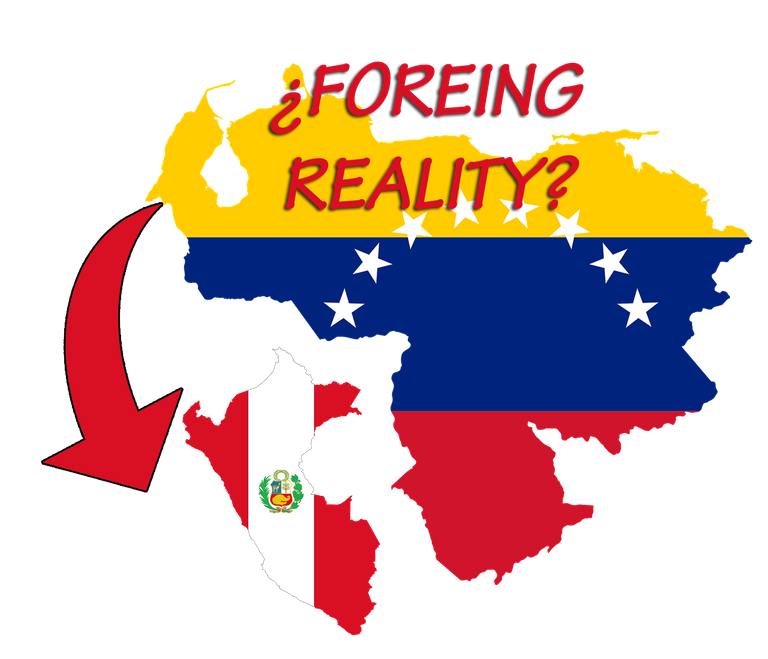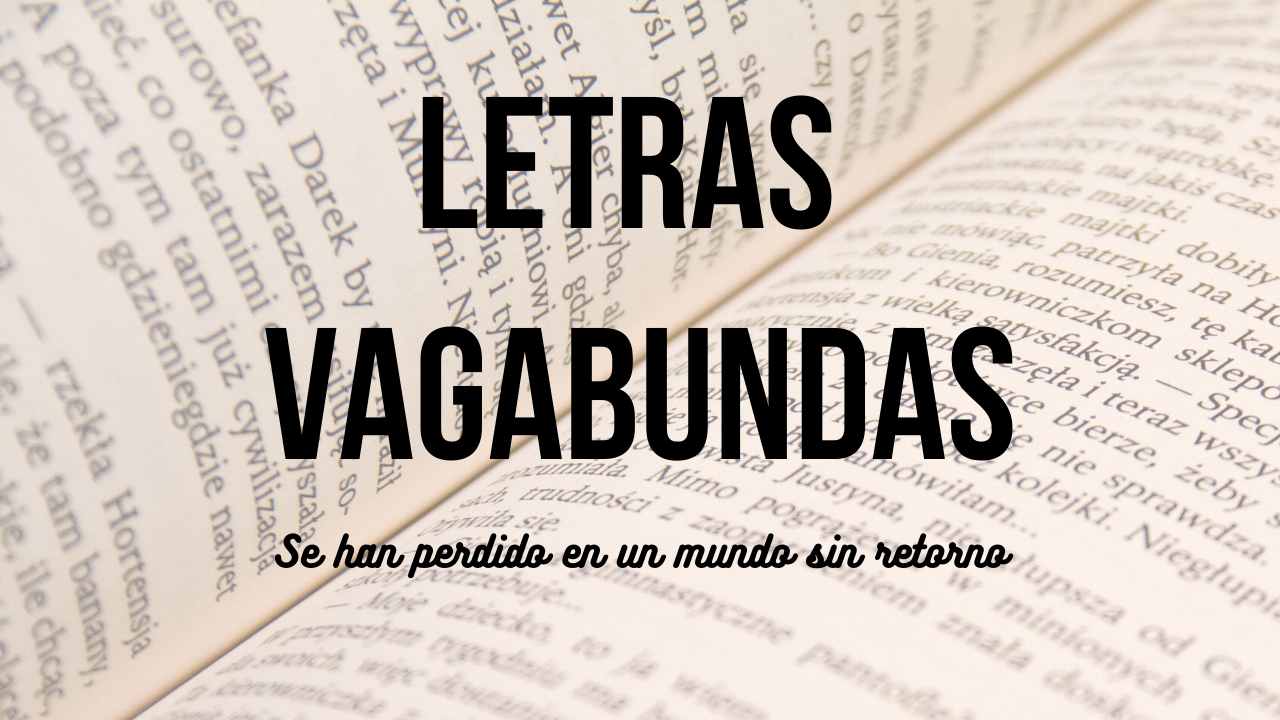
sobre el costo de vivir en mi país, agradeciendo de antemano la iniciativa de OCD de darle una mano a diferentes comunidades para impulsar su crecimiento, asimismo la posibilidad de darnos a conocer un poco más a quienes participamos.Muy buenos días, tardes o noches, según de donde me estés leyendo; soy Onexel y en esta ocasión vengo a dejarles mi humilde participación en el concurso impulsado por #OCD
En mi caso, como algunos sabrán, nací en Venezuela, en un pequeño pueblo, bastante tranquilo y lleno de naturaleza. Como siempre he dicho, mi pueblo es un lugar tranquilo para vivir, era un lugar muy barato para vivir a pesar de no tener muchas fuentes de empleos, lo cual hacía que muchos tuvieran que ir a ciudades cercanas en busca de mejores oportunidades de estudio y trabajo.
about the cost of living in my country, thanking in advance the initiative of OCD to give a hand to different communities to promote their growth, also the possibility of letting those who participate know a little more about us.WhaMy good morning, afternoon or evening, depending on where you are reading me from; I am Onexel and this time I come to leave you my humble participation in the contest promoted by #OCD
In my case, as some of you may know, I was born in Venezuela, in a small town, quite quiet and full of nature. As I have always said, my town is a quiet place to live, it was a very cheap place to live despite not having many sources of employment, which meant that many had to go to nearby cities in search of better opportunities for study and work.

En cierto punto de mi vida, tuve que mudarme a una ciudad vecina por mis estudios y una vez instalado allí, me mantuve trabajando y viviendo allí por varios años ¡Dios cuanto extraño Barquisimeto! fue mi segundo hogar.
Barquisimeto no es la ciudad más grande de Venezuela pero sí una ciudad cómoda, agradable, llena de historia musical y con buena relación calidad de vida - costo. Muy a mi gusto porque no llegaba a ser una ciudad tan ruidosa ni congestionada, en general.
Los precios en servicios básicos, alimentación y alquileres eran muy atractivos, para ser una ciudad en constante expansión como lo era Barquisimeto, ubicada en un punto estratégico comercial y geográficamente. Un costo de vida envidiable si lo comparas con otras ciudades medianas-pequeñas del país; sin embargo, como sucedió con toda Venezuela, la crisis económica atacó y causó una economía inestable y alocada, causando que comparar costo de vida con otras zonas del país fuese algo difícil y muy variante.
At a certain point in my life, I had to move to a neighboring city for my studies and once settled there, I kept working and living there for several years. God how I miss Barquisimeto!
Barquisimeto is not the biggest city in Venezuela but it is a comfortable, pleasant city, full of musical history and with a good quality of life-cost ratio. Very much to my liking because it was neither noisy nor congested, in general.
The prices in basic services, food and rents were very attractive, for a city in constant expansion as Barquisimeto was, located in a commercial and geographically strategic point. An enviable cost of living if you compare it with other medium-small cities in the country; however, as it happened with all Venezuela, the economic crisis attacked and caused an unstable and crazy economy, causing that comparing cost of living with other areas of the country was something difficult and very variant.
Se complicó el tener servicios básicos estables o constantes, se complicó obtener alimentos y bienes de primera necesidad, la educación se complicó a falta de inversión en los centros educativos existentes, colegios y universidades fueron poco a poco perdiendo su calidad y para estudiantes se hacía más difícil el asistir a clases, el cumplir con las exigencias, en muchos casos incluso por una mala alimentación, resultado del bajo ingreso en sus hogares; en fin, toda una crónica del desastre sin dar números ni precios, pero es algo que seguramente persiste en cualquier relato de la mayoría de venezolanos.
It was complicated to have stable or constant basic services, it was complicated to obtain food and basic necessities, education was complicated due to lack of investment in existing educational centers, schools and universities were gradually losing their quality and for students it became more difficult to attend classes, to meet the requirements, in many cases even due to poor nutrition, as a result of low income in their homes; in short, a chronicle of the disaster without giving numbers or prices, but it is something that surely persists in any story of most Venezuelans.

Mi cambio de realidad

Si te has fijado en lo que conté anteriormente, hablo casi exclusivamente en pasado y esto es porque a finales del año 2017 emigré de mi país, entre otras razones, por lo dificil que era pagar por lo que deberína ser servicios y bienes básicos, esto es, vivienda, servicios, alimentación y salud. Sí, seguramente también habrás leído de muchas personas que tomaron la misma difícil decisión.
Actualmente y a causa de la alta inflación en Venezuela y una serie de cambios bastante drásticos y enredados, incluso para los venezolanos (y muy probablemente, caso de estudios para economistas del mundo) en su economía, simplemente no puedo seguir el cambio en el costo de vida en mi país, muchas veces no tengo ni idea de lo que necesita para comer una semana allá, a pesar de tener a mi familia a la distancia contándome por ejemplo, que tienen 15 días sin agua en las tuberías y más de 4 meses sin gas en sus cocinas.
My change of reality
If you have noticed what I told above, I speak almost exclusively in the past tense and this is because at the end of 2017 I emigrated from my country, among other reasons, because of how difficult it was to pay for what should be basic services and goods, that is, housing, services, food and health. Yes, you have probably read about many people who made the same difficult decision.
Currently and because of the high inflation in Venezuela and a series of changes quite drastic and entangled, even for Venezuelans (and most likely, case studies for economists of the world) in their economy, I simply can not follow the change in the cost of living in my country, many times I have no idea what it takes to eat a week there, despite having my family at a distance telling me for example, that they have 15 days without water in the pipes and more than 4 months without gas in their kitchens.
Así es que cuando me preguntan el costo de vida en mi país solo puedo dar aproximaciones muy vagas de lo que vive el venezolano promedio en la actualidad, a sabiendas de que quizás mis estimaciones se quedan muy cortas. Es entonces cuando me veo tentado a comentar la economía un poco más real para mí, donde actualmente resido y que parece tener un poco más de sentido común.
So when I am asked about the cost of living in my country I can only give very vague approximations of what the average Venezuelan lives in today, knowing that perhaps my estimates fall far short. It is then that I am tempted to comment on the economy a little more real for me, where I currently reside and which seems to have a little more common sense.

Costo de vida en Perú ¿otra ilusión?
Como lees, estoy viviendo actualmente en Lima, Perú y el tiempo que llevo acá no me ha permitido más que hacerme una idea vaga de cómo funciona la economía en Lima. Les hablaré de lo más palpable que ha sido para mí, la situación de un migrante venezolano promedio. Entendiendo que no todos los venezolanos en este país ancestral nos encontramos en la misma situación, como es de esperarse.
En general, una persona que tenga un sueldo mínimo en Perú ha de estar ganando 930 soles, aproximadamente $250 USD, lo cual la verdad alcanza para lo más básico, como es de esperarse de un sueldo mínimo. Lo típico es gastar en alquiler y servicios cerca de la mitad, con suerte un tercio del sueldo, otra buena parte en la comida y pasajes, si eres organizado y puedes llevar un control de tus gastos, puedes ahorrar una pequeña, pequeña parte de ese sueldo.
Cost of living in Peru, another illusion?
As you read, I am currently living in Lima, Peru and the time I have been here has not allowed me to get more than a vague idea of how the economy works in Lima. I will tell you about the most palpable thing that has been for me, the situation of an average Venezuelan migrant. Understanding that not all Venezuelans in this ancestral country are in the same situation, as is to be expected.
In general, a person with a minimum wage in Peru must be earning 930 soles, approximately $250 USD, which is enough for the basics, as is to be expected from a minimum wage. Typically you spend about half, if you are organized and can keep track of your expenses, you can save a small, small part of that salary.
Gastar más de 150 soles ($40) al mes en pasajes ya es un gasto muy alto en este renglón, por suerte para mí, desde hace unos meses he dejado de usar transporte público y me movilizo principalmente en bicicleta, me parece que en toda la región suramericana aumentó su uso. Esto último me permite entre otras cosas, darme pequeños gustos que ya en mi Venezuela linda para la mayoría de los habitantes es casi un sueño, como por ejemplo, comerme un helado pequeño casi cualquier día aleatorio o, si quisiera, eventualmente comerme una buena hamburguesa sin dañar gravemente mi presupuesto del mes.
Spending more than 150 soles ($40) a month in fares is already a very high expense in this line, luckily for me, since a few months ago I have stopped using public transportation and I move mainly by bicycle, it seems to me that throughout the South American region increased its use. The latter allows me, among other things, to give myself small treats that in my beautiful Venezuela for most of the inhabitants is almost a dream, such as eating a small ice cream almost any random day or, if I want, eventually eat a good hamburger without seriously damaging my budget for the month.

Por lo que tengo entendido de la economía en Perú en su gran mayoría es una economía informal, de igual forma un alto número de personas viven "el día a día", esto es, logran trabajar para comer a diario y un día sin producir de sus empleos les afecta drásticamente sus finanzas.
A pesar de lo anterior, puedo asegurar que sí, en comparación a lo difícil de poder comprar comida para todo un mes en mi país Venezuela, acá en Perú es mucho más accesible y posible hacer un mercado que se acerque a cubrir todo el mes.
Otra cosa que a veces olvido estando aquí es la capacidad que tenía de ir a otros estados o provincias, en más de 3 años que tengo viviendo en Perú entre el factor dinero y el factor tiempo (o falta de tiempo libre), no he podido salir de Lima, la capital, a conocer otras provincias, otras playas que sean cristalinas, otras tierras; y parte de mí, esa parte exploradora y viajera, se siente bastante frustrada por ello.
From what I understand about the economy in Peru, most of it is an informal economy, and also a high number of people live "day to day", that is, they manage to work to eat every day and a day without producing from their jobs affects their finances drastically.
Despite the above, I can assure you that yes, compared to how difficult it is to buy food for a whole month in my country Venezuela, here in Peru it is much more accessible and possible to make a market that comes close to cover the whole month.
Another thing that I sometimes forget being here is the ability I had to go to other states or provinces, in more than 3 years that I have been living in Peru between the money factor and the time factor (or lack of free time), I have not been able to leave Lima, the capital, to know other provinces, other beaches that are crystalline, other lands; and part of me, that explorer and traveler part, feels quite frustrated by it.

Con todo esto quisiera también comentar algo quizás obvio es que siempre debemos buscar mejorar en nuestros empleos, buscar algo mejor, si es posible una sagunda y tercera fuente de ingresos; en Venezuela esto se ha echo totalmente imperativo si quieres SOBREVIVIR, por otro lado en Perú podría decirse que no está de más si quieres vivir un poco mejor e ir ahorrando para un futuro.
Gracias por dedicar parte de tu valioso tiempo y leer estas líneas y muchas felicidades a todos quienes se atrevieron a participar y contar parte de lo que es su realidad, nos vemos en una próxima ocasión.
With all this I would also like to comment something perhaps obvious is that we should always seek to improve our jobs, look for something better, if possible a second and third source of income; in Venezuela this has become totally imperative if you want to SURVIVE, on the other hand in Peru it could be said that it is not superfluous if you want to live a little better and go saving for the future.
Thank you for dedicating part of your valuable time and reading these lines and congratulations to all those who dared to participate and tell part of what is their reality, see you next time.

Noticias, opiniones, review y más sobre el mundo tecnológico y videojuegos... 

Mis redes sociales:





This is interesting to see the comparison. Often things are different from different eyes, depending on previous experiences.
Congratulations @onexel! You have completed the following achievement on the Hive blockchain and have been rewarded with new badge(s) :
Your next target is to reach 8000 upvotes.
You can view your badges on your board and compare yourself to others in the Ranking
If you no longer want to receive notifications, reply to this comment with the word
STOPSupport the HiveBuzz project. Vote for our proposal!